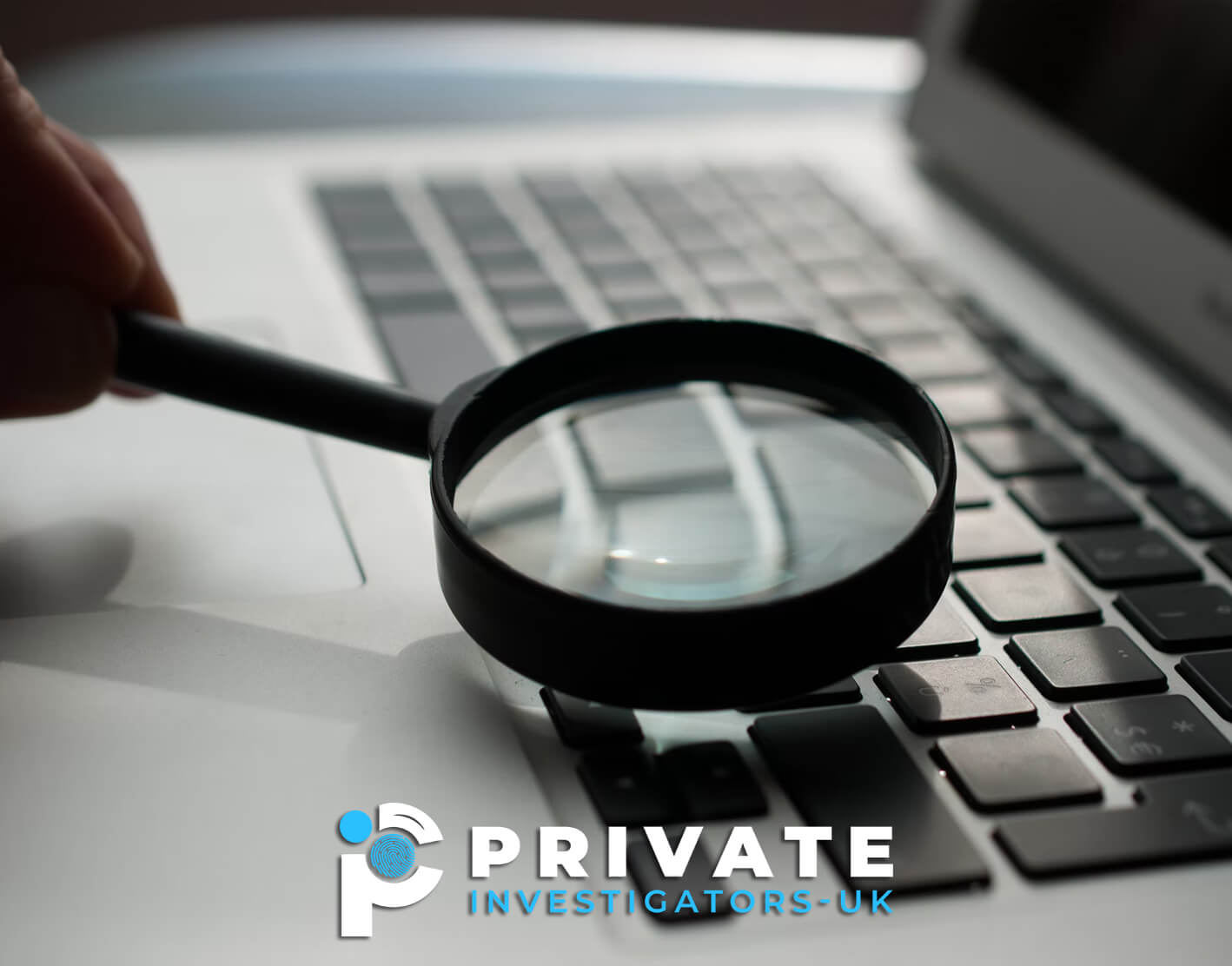Why Would a Private Investigator Want to Talk to You?
October 25, 2023 - Reading time: 11 minutes
Updated on: September 4, 2025
Private investigators do not contact people without prior contact to ask for money or payment. If someone phones, emails, texts, or messages you through WhatsApp or Telegram claiming to be a PI and demanding money, it is almost certainly a scam.
In the UK, private investigators are not licensed and have no special powers. Some scammers use the title to sound authoritative. Do not send money, do not share personal or financial information, and always verify the business independently.
- Hang up and call back using a number listed on the firm’s official website.
- Check Companies House to confirm they are a registered business.
- Report scam attempts to Action Fraud and your bank if money has been sent.
Why Would a Private Investigator Want to Talk to You?
When most people think of private investigators, they imagine someone watching from behind darkened car windows or hiding in the bushes. In reality, private detectives often speak to people directly - and not always for suspicious reasons. If a private investigator has tried to contact you, it usually means you might know something useful.

Being contacted by a PI isn’t necessarily bad. Your cooperation could help someone else - or even benefit you. Below are some of the most common reasons a private investigator might try to reach you.
1. You’re Involved in Legal Proceedings
If you're going through a divorce, child custody case, or being sued, a private investigator may be trying to deliver legal documents. This process is called process serving. It can include claim forms, bankruptcy petitions, family court paperwork, and restraining orders.
If a PI approaches you in public and asks for identification, they are probably serving you papers. Avoiding them won’t help - legal papers can still be served, even if they are left at your feet.
2. Someone You Know Is Missing
When someone goes missing, especially a vulnerable person, PIs are often called in to help. If they’re reaching out to you, it may be because you know something that could help reunite someone with their family.
Finding a missing person usually involves record searches and speaking with people who may know more. A short conversation with a PI could make all the difference.
3. You (or Someone You Know) Owe Money
Debt recovery is a regular part of investigative work. A PI may contact you if you’re listed as a debtor, guarantor, or someone who could provide useful information.
You are not legally obliged to cooperate, but dodging calls rarely ends the matter. In some cases, it’s better to communicate - or even hire your own investigator if you are worried about privacy or fairness.
4. You Previously Reached Out to a Private Investigator
If you filled out a contact form, sent an enquiry, or messaged a PI online, don’t be surprised if they follow up. Like any professional service, private investigators need to assess your case before taking it on.
They will usually ask questions to clarify your goals, the situation, and the people involved. This isn’t prying - it’s about checking whether they can actually help. Many investigators also offer a free consultation or quote before you commit.
5. You’re the Subject of a Background Check
If you’ve applied for a job, tenancy, or financial role recently, you may be undergoing a background check. Private investigators often carry these out on behalf of employers or companies doing due diligence.
If you're contacted in this context, there is no need to panic. If you’ve got nothing to hide, engaging can even work in your favour because it shows transparency.
6. You Work in Law Enforcement
Sometimes, private investigators uncover information that relates to active crimes. While they aren’t police officers, responsible investigators will pass on anything relevant to law enforcement. If you’re in law enforcement, a PI may be trying to share something important.
7. You've Inherited Money
Not all reasons are bad. Sometimes, it’s good news. If a relative has died and you’ve been listed in their will, a PI may have been hired to track you down. Locating beneficiaries is common, especially when executors need to find missing heirs or relatives.
In these cases, a PI is acting on behalf of an estate. You may be owed money or property, and they’re trying to make sure you receive it.
So, Should You Respond?
If a private investigator contacts you, you can choose to speak with them or refuse. In many cases, ignoring them only delays things. If you’re unsure, consider seeking legal advice or consulting your own investigator if the matter feels sensitive.
How to Spot Fake Private Investigators
Sadly, there are scams where people pretend to be private investigators. In the UK, private investigators are not licensed and do not hold special powers. A genuine PI may be hired for tracing, background checks, or serving papers, but they will not call you out of nowhere asking for bank transfers or gift cards.
If someone contacts you on the phone, by email, or through apps like WhatsApp or Telegram claiming to be a PI and demanding money, treat it as a scam. Real investigators work for clients and businesses, not by chasing strangers for payments.
- Check the company’s website for a physical address and landline number.
- Search Companies House to see if they are a real registered business.
- Report any suspicious contact to Action Fraud.
This helps protect you from fraud and avoids being tricked by criminals posing as detectives.
Frequently Asked Questions
Do private investigators call you out of the blue?
They might if you are a witness, a beneficiary, a debtor, or the subject of a background check. What they should never do is contact you to demand money up front.
Are private investigators licensed in the UK?
No. There is no government licence for private investigators in the UK. Reputable firms still follow the law, privacy rules, and industry codes.
How can I verify a legitimate private investigator?
Look for full business details, an office address, a landline, and client reviews. A trustworthy PI will provide written fees and will not pressure you to pay on the spot.
What should I do if I think a caller is a scammer?
Hang up, find the firm’s number yourself, and report it to Action Fraud. If you already sent money, contact your bank right away.
Related Articles
How We Help Serve Statutory Demands & Bankruptcy Petitions
October 20, 2023 - Reading time: 11 minutes
Updated on: September 3, 2025
When you’re trying to recover a debt, especially a significant one, the process can feel stressful and uncertain. Whether it is unpaid invoices, breached agreements, or overdue loans, there may come a point where formal legal action becomes the only viable route. Serving a statutory demand or a bankruptcy petition is a key part of that legal strategy, and it needs to be executed correctly.

At Private Investigators UK, we offer a professional, fully compliant process serving service — ensuring documents are delivered accurately, effectively, and with proper legal documentation.
What Is a Statutory Demand?
A statutory demand is a formal legal notice used to request repayment of a debt. It is most commonly issued under the Insolvency Act 1986 and gives the debtor 21 days to repay, reach a repayment agreement, or apply to set it aside.
If they do not act, the creditor has grounds to begin insolvency proceedings. More information is available on gov.uk.
What If the Debtor Wants to Challenge It?
They may apply to set aside the demand if the debt is disputed or already paid. The matter could then be referred to court for a judge to decide.
When Does Bankruptcy Come Into It?
If the debtor ignores the statutory demand and owes more than £5,000, the creditor can apply for a bankruptcy petition. This is where a judge may declare the individual bankrupt and their assets may be sold to repay creditors.
The petition must be served correctly. Errors can cause delays or rejection in court. Read more at gov.uk.
What Is Process Serving and Why Does It Matter?
Process serving is the delivery of legal documents in a way that satisfies court rules. If you are serving a statutory demand or bankruptcy petition, using a qualified process server is the safest way to avoid problems.
Debtors often try to avoid service by disappearing. Proof of service is essential to move your case forward — and ordinary post is rarely enough.
Why Use a Private Investigator for Process Serving?
Private investigators bring more skills than couriers or bailiffs. At PI-UK we provide:
- In-person delivery – we serve documents directly at home, work, or other known addresses.
- Full documentation – photographs, affidavits, and witness statements are supplied.
- Debtor tracing – if the subject has moved, our people tracing service helps track them down.
How We Locate Debtors Trying to Avoid Service

Many debtors facing bankruptcy try to disappear — moving address, staying with relatives, or using aliases. We use OSINT, digital footprint checks, and field enquiries to find them quickly and lawfully.
What Happens After a Successful Serve?
We issue a detailed Affidavit of Service confirming when, where, and how the serve took place. This sworn statement strengthens your case in court. If the debtor still refuses, you can proceed with confidence to bankruptcy or further court action.
What If the Debtor Refuses to Accept the Documents?
Under UK law, refusal does not invalidate service. If the debtor is identified and told the nature of the documents, placing them at their feet or nearby counts as valid service.
Other Documents We Serve
- Divorce papers
- Non-molestation orders
- Injunctions
- Witness summons
- Possession orders
- Court summons
Need Urgent Help Serving Papers?
Our licensed investigators provide fast, discreet and legally valid process serving across the UK.
Get a Free Quote
We provide fast, no-pressure quotes on all cases. Contact us with your postcode and details. We usually reply within one business day with a transparent, no-obligation quote.
Whether you are a solicitor with a heavy caseload or an individual seeking justice, our process servers are ready to help.
Glossary
- Statutory demand – a formal demand for repayment of debt under the Insolvency Act 1986.
- Bankruptcy petition – legal request to declare an individual bankrupt.
- Process serving – official delivery of legal documents with proof of service.
- Affidavit of service – sworn statement confirming a document has been served correctly.
- Debtor tracing – investigative work to find someone avoiding creditors.
Is My Tenant Subletting My Property Without Permission?
October 14, 2023 - Reading time: 12 minutes
Updated on: September 4, 2025
Quick navigation:
If you’re a landlord, knowing who lives in your property is more than just a formality - it’s a necessity. But what happens if your tenant is subletting the property without telling you? Whether it’s long term lodgers or short term guests via platforms like Airbnb, unauthorised subletting can create serious issues.

From unexpected wear and tear to potential legal consequences, subletting without consent can turn your investment into a liability. At Private Investigators UK, we’re often called upon to discreetly confirm whether subletting is taking place - and if so, to provide the proof landlords need to act confidently.
What Exactly Is Subletting?
Subletting is when your tenant rents out all or part of your property to someone else. The original tenant effectively becomes a landlord to the subtenant. In some cases, this might involve a formal agreement between them - in others, the arrangement is informal and unregulated.
Subtenants usually have exclusive rights to the room or rooms they occupy, and they pay rent to the original tenant - not you. With today’s rental prices, this can be a tempting way for tenants to make extra income. Some sublet long term, while others take advantage of short term letting apps.
Is Subletting Without Permission Illegal in the UK?
Subletting in itself is not illegal - but doing it without your permission often breaches the tenancy agreement. Most contracts clearly state whether subletting is allowed, and under what conditions.
If a tenant breaks this agreement, you may have grounds to begin eviction proceedings. Before taking action, it is crucial to gather reliable evidence.
Why Unauthorised Subletting Is a Problem
Subletting without your knowledge can lead to a number of issues, including:
- Subtenants with no verified background or credit checks
- Uncertainty around who is living in the property
- Increased wear and tear, property damage, or illegal activity
- Potential violation of HMO rules
- Voided landlord insurance due to unapproved occupancy
One of the most serious risks is unknowingly running an illegal HMO. A property may be an HMO when it is occupied by at least three unrelated people who share facilities. If unlicensed, fines can be severe.
Common Signs Your Tenant May Be Subletting
While it is not always easy to prove subletting, these red flags should raise your suspicion:
- Multiple people seen entering and exiting the property regularly
- Mail or parcels addressed to unknown names
- Locks on internal bedroom doors or key safes installed without consent
- Tenants evasive about who else is living there
- Listings for your property appearing on short let sites
How Can a Private Investigator Help?
Many landlords come to us when they suspect subletting but do not have clear proof. Confronting a tenant without evidence often results in denial or retaliation.
Our investigators can carry out discreet residency checks and surveillance to confirm exactly who is living at your property, and when. If subletting is happening, we gather evidence such as photographs, movement logs, and witness reports - all designed to be used in court if needed.
In cases where tenants attempt to disappear or conceal subtenants, we also provide a specialist people tracing service to identify and locate individuals linked to your address.

Can I Evict a Subtenant?
You cannot evict a subtenant directly unless you have a legal relationship with them - but you can evict your original tenant for breach of contract. Once they leave, the subtenant has no right to remain unless they enter a new agreement with you.
If damage has occurred, or if the situation has put your insurance at risk, legal action may be necessary. Evidence gathered by licensed investigators strengthens your position. When proceedings are required, we can assist with process serving so documents are delivered correctly.
Glossary
- Subletting - A tenant rents out part or all of the property to someone else.
- Subtenant - The person renting from your tenant rather than from you.
- HMO - House in Multiple Occupation. Certain shared homes must be licensed.
- Residency check - An investigation to confirm who actually lives at an address.
- Process serving - Formal delivery of legal documents with proof of service.
Need Help? Get in Touch
If you are worried that your tenant might be subletting behind your back, do not let the situation escalate. Contact us for a free, no pressure quote. Include the property postcode and a short description. We will assess your concerns, offer clear guidance, and if needed, deploy a specialist to discreetly investigate.
Can Evidence from Private Investigators be used in Court?
October 8, 2023 - Reading time: 10 minutes
Updated on: September 4, 2025
Yes. Private investigators can gather evidence which is admissible in a court of law, subject to the discretion of the judge. For evidence to be legally admissible, investigators must follow strict practices and procedures. There are, however, exceptions and important considerations relating to the admissibility of surveillance evidence in UK courts.

Gathering evidence for use in court is a delicate matter which should only be handled by an experienced private investigator. When it comes to covert surveillance or checking on a person's activities, one mistake could alert the subject and undermine the case. Experience and discretion are crucial when gathering proof that stands up in court.
Gathering Information Legally
Maintaining the admissibility of evidence requires following UK law. Competent private investigators understand what counts as legal surveillance. Any evidence obtained through trespassing, hacking, intimidation, or unlawful methods will be rejected by the court and could expose the investigator to prosecution. Judges only admit surveillance evidence when it is collected fairly and lawfully.
Changes in Accessing Internet Data
The Investigatory Powers Act (2016) reshaped how internet data can be accessed. This legislation tightened restrictions, making careless data handling a criminal offence. For private investigators, it limits what can legally be done in online research and surveillance, further defining what is admissible digital evidence in UK courts.
Clarity and Precision
Reports prepared for court must be clear and precise. A private investigator’s report needs to use neutral language and present facts in a structured way. Vague or speculative reporting undermines admissibility. Judges expect a report that shows professionalism and leaves little room for misinterpretation.
Improving Evidence Quality
Evidence does not need to be perfect, but higher quality makes it more persuasive. Professional investigators record video and photographs in high definition, with accurate time and date stamps. Metadata can also strengthen the case. This kind of detailed surveillance evidence is often relied on in personal injury claims or insurance disputes.
Importance of Clear Footage
In family law cases such as child custody or divorce, the quality of footage is critical. Simply filming a subject carrying a box does not necessarily show whether they are fit or unfit. Surveillance should capture clear context - what the box contained, the subject’s movements across the day, and over a longer period. Clear, legally obtained surveillance footage is far more likely to be admissible in UK courts.
Polygraph Tests and Admissibility
In the UK, polygraph test results are not admissible in either criminal or civil courts. Other countries sometimes allow them, usually only when administered by law enforcement. UK private investigators therefore do not rely on lie detector results for legal proceedings.
Common Reports Used in Court
Private investigators are often engaged to provide evidence in child custody disputes, divorce cases, and personal injury claims. In custody disputes, surveillance helps demonstrate day to day care arrangements. In divorce proceedings, investigators may be asked to prove infidelity or hidden assets. For corporate clients, surveillance evidence is frequently used in personal injury fraud cases. In all situations, admissibility depends on whether the surveillance was legal, proportionate, and relevant.
If a client needs to serve court paperwork, investigators can also act as impartial process servers. This helps ensure documents are delivered properly and recognised by the court.
Frequently Asked Questions
Is surveillance evidence admissible in UK courts?
Yes, if it is obtained lawfully and fairly. Courts consider legality, relevance, and proportionality. Unlawful methods such as trespass or hacking will usually render evidence inadmissible.
Can a private investigator testify in court in the UK?
Yes. Investigators can give evidence as witnesses of fact and can be cross examined on their observations, methods, timestamps, and reports.
Is covert surveillance legal in the UK for private cases?
Covert surveillance can be lawful if carried out without trespass or harassment and in line with privacy and data protection rules. Filming in public places is generally allowed, but recording inside private property without consent is likely unlawful.
Do I need consent to record someone in public?
Consent is not usually required in public spaces where there is no reasonable expectation of privacy. That said, recording must still be proportionate and not amount to harassment.
Is surveillance evidence useful in divorce or child custody cases?
Yes. Family courts may consider legally obtained video, photographs, and logs. The key is relevance, clarity, and lawful collection. Context across several days often helps.
Is personal injury surveillance admissible?
Often, yes. High quality, time stamped footage that shows capability over time can be persuasive, provided it was gathered lawfully and proportionately.
What terms should I search for if I want this type of help?
Useful phrases include legal surveillance UK, admissibility of video evidence UK, surveillance for child custody cases, surveillance in divorce proceedings, personal injury surveillance admissibility, and process serving for UK courts.
Private Investigators UK
We are leading private investigators based in the UK. Visit our homepage to learn more about services including legal surveillance, process serving, background checks, and court ready reporting, or request a free, no obligation quote.
You are reading the PrivateInvestigators-UK blog — home to the UK's leading detective agency. Learn more about us by visiting our homepage PrivateInvestigators-UK.com.